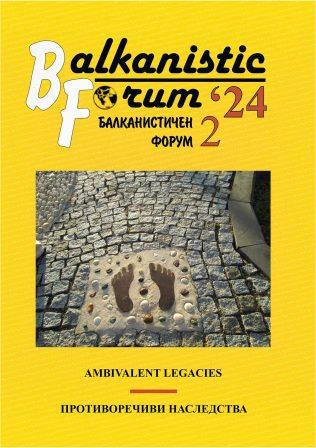How Totalitarianism was Reflected on the Life and Work of Women Writers
How Totalitarianism was Reflected on the Life and Work of Women Writers
Author(s): Tamila Davitadze, Nana MazmishviliSubject(s): History, Language and Literature Studies, Cultural history, Studies of Literature, Georgian literature
Published by: ЮГОЗАПАДЕН УНИВЕРСИТЕТ »НЕОФИТ РИЛСКИ«
Keywords: women writers; Totalitarian regime; repression; literature and politics
Summary/Abstract: How many people, when and why became victims of totalitarianism in Georgia instinctively has been exciting the citizens to this day, however, to our surprise, knowledge about the causes of this tragedy and the motivation of the people involved in it is not increasing - on the contrary, becomes more obscure and mythologized; due to the lack of information and stereotypes, the issue often turns into a tool of manipulation in the hands of interested parties. Today's unfavorable reality - when public interest is low and knowledge is saturated with stereotypes, the research of the Soviet past is very fragmented and small-scale. Free access to documents depicting mass repressions carried out by the Soviet totalitarian regime is not possible. In various ways, the National Archive offers the readers to familiarize themselves with the records of the archival funds of law enforcement agencies and courts from 1930 to the present day - where the names and surnames of the victims of the Soviet terror are barcoded and which we would like to share in the present research. The main subject of our research is how totalitarianism affected the life and creativity of Georgian women writers; the object of the research is Marika Mikeladze (1933-2015), a translator and writer and Zaira Arsenishvili’s, a write and screenwriter, work and life full of difficulties in the conditions of repressions and totalitarian regime.
Journal: Балканистичен Форум
- Issue Year: 33/2024
- Issue No: 2
- Page Range: 208-224
- Page Count: 17
- Language: English
- Content File-PDF

